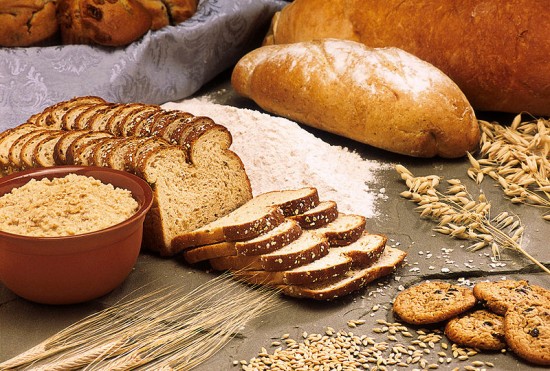Oh, carbohydrates. Just like politics and religion, discussion on this macronutrient is not dinner table material. There are many strong opinions on just how many carbohydrates are “safe” to consume. Some advocate “high” carb, others prescribe a “moderate” amount, others “low” or even “very low”. And to mystify things further, what’s considered a low amount of carbohydrates to some, may be considered too high for others. Even the scientific literature doesn’t seem to agree on a common definition. See how it can get confusing?
The purpose of this post isn’t to tell you which way is better. In fact, that is a decision you may never make. What works for some people, won’t work for others. What works for you now, may not work for you next week. If something is working for you, great! Right now, I want to explore one piece on the topic of carbohydrates that isn’t discussed often in this community.
I bring up this topic because I personally struggled with finding the “right” amount of carbohydrates for my body. I want to make sure others don’t have to go through what I did. In the past, I’ve done damage to myself by going too low (almost on accident) and I want to stop you before it’s too late. If you’re in the same boat as I was, I’m hoping this will be an aha! moment for you.
When I first started with my Paleo lifestyle, I realized just how amazing I felt going lower carb (probably in the range of 100 grams a day). The problem was, I was also doing high intensity workouts (kickboxing, interval training) multiple times per week. At first, I felt great. I was recovering like a champ, my sleep was perfect, I had a very stable, positive mood, and even though I knew I would probably benefit from more carbohydrates, I stubbornly went on my way.
Then I switched my training to solely heavy lifting (3 x 5, 1 rep max. style) + a few sprints. I started hearing more about ketogenic diets and figured I’d give that a try, especially since I wasn’t doing all the high intensity stuff anymore. Sugar is toxic anyways, right?
After all was said and done, I lost my cycle and messed up my hormones up pretty badly. I began seeing this time after time in my consulting practice and started digging deep into the literature. After many hours of research (and still counting), I found more and more evidence regarding proper amounts of carbohydrates for females with specific conditions. We always talk about biochemical individuality and using Paleo as a template, but I think for the effect of carbohydrates on women, this is a big deal.
Once I made a few tweaks to my diet and lifestyle, including adding back more carbohydrates, my hormones rebalanced. I also recommended that some of my clients follow similar protocols and they saw very positive results as well. We didn’t have to start throwing back pounds of sweet potatoes and rice, we just needed to quit the chronic very low carb (<50ish grams) lifestyles that we were on and add in some root veggies and fruit.
Ladies – Your carbohydrate intake could be a missing piece of the equation when it comes to balancing your female hormones, losing weight, recovering from exercise, supporting your thyroid, boosting your energy, and so much more.
Very often, I see females dealing with cycle irregularity, weight lost resistance, and poor exercise recovery in my practice as a dietitian. I’ll hear stories about how a Paleo template was working wonders for them and then all of a sudden they lost their cycle. Sometimes these ladies were rocking their workouts and then started to crash. Chicken, broccoli, and olive oil were working in their favor for weight loss, but now “just looking at that food made them gain 10 pounds.” They immediately blame it on adrenal fatigue and start taking adrenal support supplements hoping that will do the trick.
Sound familiar? Read on.
Yes, of course some of the problems women experience with weight loss resistance, poor recovery, altered sleeping patterns, and cycle-related issues may be due to stress, thyroid problems, or their adrenals. There are always other reproductive problems, such as PCOS and endometriosis, that can also create hormonal havoc and weight gain. Those are very probable guesses and something to consider; however, what if there was something even easier to implement that could help get you back on track? Could the answer be as simple as adding back more carbs?
Maybe simple isn’t the right word. In fact, nothing about nutrition is ever simple. I’m not talking about going back to eating legumes and healthy whole grains to lose weight and regain hormonal balance.
There’s a catch with this. There’s always a catch. Remember when I said, “what works for some, won’t work for others?” Let’s elaborate on that, shall we?
- If you are active, especially with a focus on frequent, high-intensity based workouts
- If you start having trouble recovering from your workouts
- If your thyroid is underactive, even with a clean diet and support from medications
- If you have adrenal fatigue
- If you start to lose your period or have irregular cycles (pre-menopause)
- If you’ve been very low carb for an extended period of time
- During pregnancy and while breastfeeding
When you may need less:
- If you have a condition such as PCOS, fibroids or endometriosis
- If you are dealing with small intestine bacterial or yeast overgrowth
- If you are insulin resistant or have diabetes
- If you have a neurodegenerative disease
- If you have certain forms of cancer
?
Other blog posts on this site have discussed the low-carbohydrate approach for insulin resistance, neurodegenerative diseases, and cancer, so I want to specifically discuss why going too low carbohydrate may be problematic for supporting a healthy female hormone environment.
When a female ventures to a Paleo diet, she will be, by default, significantly reducing the amount of carbohydrates in her diet. Sure, starchy vegetables and fruit will provide her with some carbohydrates, but compared to the standard American diet, this is a dramatic shift. She will do great on the diet and may notice weight loss. After awhile, the weight loss may stall and she may read about the benefits and weight loss seen with lower carbohydrate Paleo diets. The thought is intriguing and she says goodbye to starches and fruit in her diet. Maybe entirely, or maybe just scaled way back. This new low-carbohydrate venture may work well for awhile, until at some point it doesn’t.
Getting your hormones back on track requires you to convince your body that it’s not in danger. This may mean working on improving the quality of your sleep, cutting back on exercise, implementing stress reduction techniques, eating enough calories to maintain normal body functions (resting metabolic rate) and possibly eating more or less carbohydrates, if you’re dealing with some of the factors listed above.
But why?
The why deserves a lengthy discussion, so I’ll get into that in a future post. In the meantime, let’s talk about leptinfor a second. This hormone may play a key role for women in balancing their hormones, so it’s worth mentioning in this blog.
Remember leptin? Leptin is the new insulin. Okay, stupid joke, but leptin is gaining popularity in the scientific literature. Leptin is a hormone that circulates through your body assessing your energy availability. Leptin receptors have been identified in human ovaries and pre-ovulatory follices. Your fat stores represent a vital component in your body’s energy balance and reproductive function is dependent on energy availability. Thus, it makes sense how leptin could play a role in menstrual cycle changes.
If you’re not consuming enough calories or are going too low in carbohydrates to support activity, you could be messing with leptin’s ability to regulate your reproductive hormones. By going too low in both carbs and calories, you can also send signals to your body indicating that it is under stress. Your body isn’t not prioritizing a baby if it’s worried about its next meal.
Insulin stimulates leptin synthesis, so if you are dramatically cutting your carbs, you are likely further dampening your body’s leptin levels. This is especially true if you are lean and are eating a low-carbohydrate diet. Since women who have low body fat stores also have lower leptin levels, this can cause trouble.
What we know from the research is that we have a critical leptin level that is needed to maintain proper female hormone levels and menstruation. Thus, leptin levels are a sensitive marker of nutritional status in women. Insulin and glucose are key components of a complex feedback loop between fat stores and the hypothalamic regulators of reproduction. Meaning, if we are cutting our carbohydrates too low we could be compromising our reproductive systems ability to function at its best.
Another interesting study focusing on the ketogenic diet in adolescents, found that while there was a significant reduction in the number of seizures experienced and a majority of participants lost weight, 45% of the girls reported menstrual problems. These included amenorrhea and delayed puberty. A majority of the girls experience return of normal menses after the diet was discontinued. Yes, this is just one study, but it’s a pretty eye-opening to me.
We’ve talked about the Female Athlete Triad in an earlier post. Part of the triad is menstrual disturbances (amenorrhea or irregular cycles) and another is low energy availability/intake. This second part needs some discussion. What we are seeing is that it low energy availability, rather than inadequate body fatness or exercise stress, being the mechanism by which exercise negatively affects the hypothalamic-pituitary-ovarian axis in females. Of course if you are super skinny, your chances of having your hormones be in balance is highly unlikely. What this is saying is that if you are suffering from a lack of calories, regardless of weight, you will face obstacles when it comes to reproducing, feeling your best, not biting someone’s head off during times of the month, and owning it at the gym.
What is so amazing about this point is that it suggests that you don’t have to be stick-skinny to be suffering from hormonal complications. You may even be overweight, but your body can think you’re starving due to a true caloric deficit or potentially going too low on carbohydrates. Maybe you think your cycle is fine because you are regularly menstruating every month. Unfortunately, that is wishful thinking. While the presence of menstrual bleeding is often used as an indicator of a functioning system, the length of the phases in your cycle and optimal LH/FSH/estrogen/progesterone levels could all be out of whack even WITH a regular period. If you’re on any kind of hormonal contraception, that regular “bleed” at the end of the month doesn’t even tell you a whole lot about what’s really going on with your hormones. It’s misleading.
So what’s a good amount of carbohydrates for females?
The answer varies significantly from person to person; however, if you are an active female that is having a poor time recovering for workouts, having issues with your thyroid, having a tough time leaning out even though you are doing “all the right things,” or are having an irregular cycle (pre-menopause), you may want to consider bumping them up to at least 100 grams and see how you do.
I usually recommend about 15-30% of your total calories as carbohydrates, unless you are highly active and/or are dealing with the conditions described above that would warrant going lower. For females, eating about 2,000 calories/day, this is about 75-150 grams of carbohydrates/day. 75-150 grams/day may seem like a high carbohydrate diet to some of you eating very low-carb, but when compared to a standard American diet of 225-325 grams per day for a 2,000 calorie diet, it’s really not.
For a clean Paleo diet, 100 grams of carbohydrates would be equivalent to eating approximately two large sweet potatoes and 1 cup of blueberries.
In summary:
- Lower is not always better when it comes to carbohydrates for females.
- Experimentation and individualizing your diet to your specific needs is key!
- If you’re a female and you’ve been doing very low carb for an extended period of time, you may find benefit with the health of your thyroid, adrenals, liver, and ovaries by bumping them up a bit.
- Carb cycling may be a great tool if you’re not ready for a daily increase in carbs.
- Changes in your cycle may not be related to exercise intensity or body fatness per se, but to inadequate energy intake (including carbohydrates levels) to meet the demands of the exercise.
- Sleep, toxins, stress levels (both physiologic and psychological), and the health of your thyroid (which can also be negatively affected by a lower carb approach), among a multitude of other factors also play a role in regulating your hormones, so make sure to work with a practitioner to get these things sorted out instead of covering the symptoms with medications and upping your carbohydrate intake alone.



